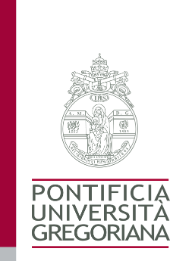Pontificia Università Gregoriana (PUG)
Presentation
St Ignatius of Loyola laid the foundations of the Pontifical Gregorian University by establishing, in 1551, a School of Grammar, Humanities and Christian Doctrine, free of charge, which was called the Roman College for many centuries. Gregory XIII, in 1583, endowed the Athenaeum with new and larger premises, for which he was called « Founder and Protector », and in memory of this benefactor the Roman College later took the name Gregorian University, whose Grand Chancellor is the Prefect of the Dicastery for Culture and Education and the Vice Grand Chancellor the Jesuit Superior General of the Society of Jesus.
Studying at the Gregorian offers a unique experience, on a human, ecclesial and academic level, that leaves a lifelong imprint of universality. Its international character, with professors and students coming from 125 countries, makes the environment of the University peculiar. In a multicultural environment, where centre and periphery meet, the Gregorian University has a diverse educational offer in its six faculties, three institutes and five specialised centres.
The diversity of academic areas allows the University to implement what Pope Francis, in the Apostolic Constitution Veritatis gaudium, asks of ecclesiastical universities: « inter- and trans-disciplinarity exercised with wisdom and creativity in the light of Revelation ».
Living and studying in Rome is not a mere geographical fact for us. In the city of Peter and Paul, we are in the heart of the Christian world, in close contact with our history and identity. Therefore, the University offers its students - seminarians, priests, men and women religious, laymen and women - an environment marked by ecclesiality. It inspires and trains those who prepare for highly qualified service in their local churches.
The Gregorian University confers academic degrees with canonical value by authority of the Holy See, in accordance with the principles of the Bologna Process signed by the Holy See in 2003.
The University also has the right to confer other degrees for itself or through its various academic units, subject to the nulla osta of the Dicastery for Culture and Education.
The current academic units of the PONTIFICAL UNIVERSITY GREGORIANA are:
Faculty of Theology, Faculty of Canon Law, Faculty of Philosophy, Faculty of History and Cultural Heritage of the Church, Faculty of Missiology, Faculty of Social Sciences.
Institute of Spirituality, Institute of Psychology, Institute of Anthropology. Interdisciplinary studies on human dignity and the care of the vulnerable.
St. Peter Favre Centre for Formators for the Priesthood and Consecrated Life, ‘Cardinal Bea’ Centre for Jewish Studies, ‘Alberto Hurtado’ Faith and Culture Centre, Ignatian Spirituality Centre, Gregorian Centre for Interreligious Studies.


